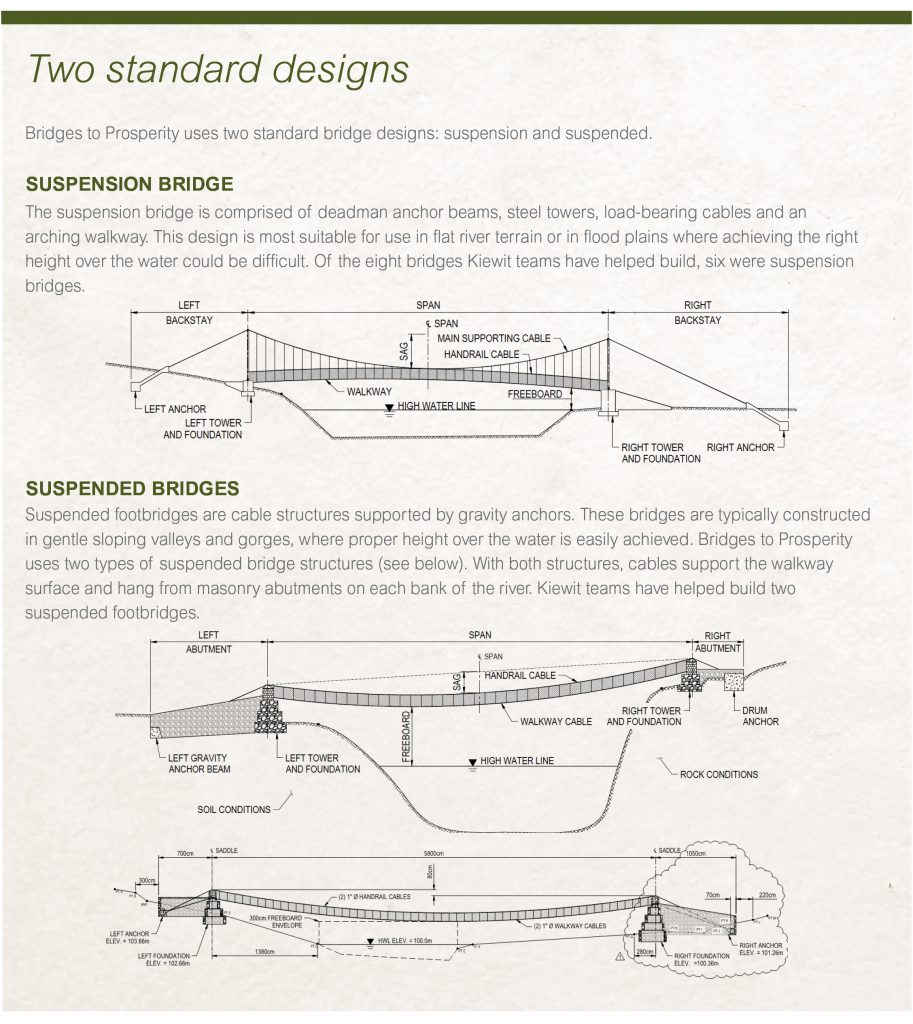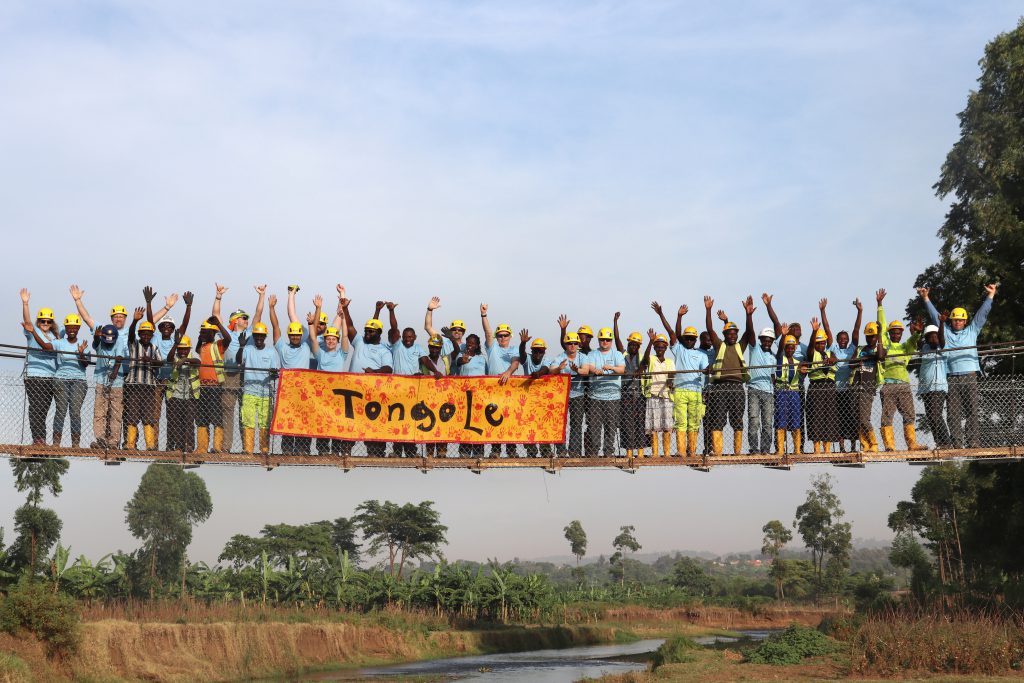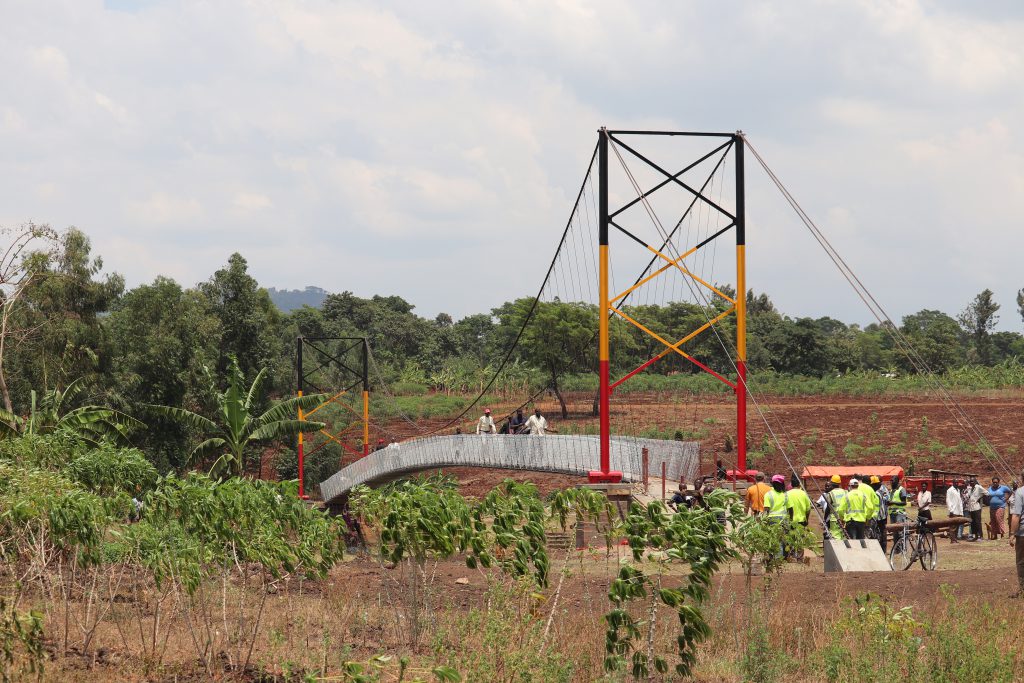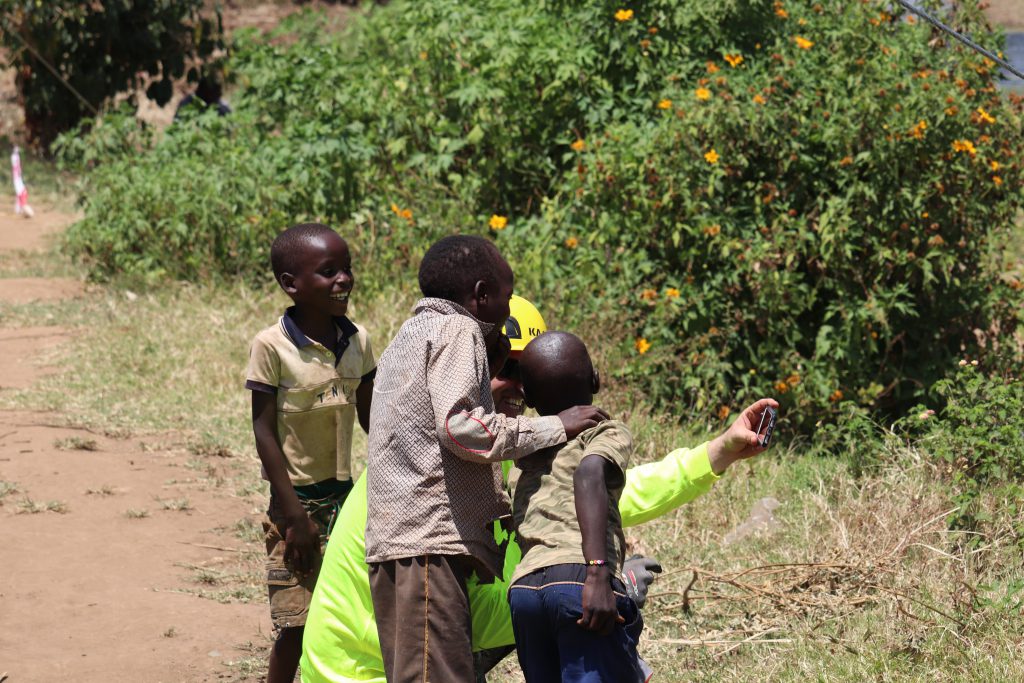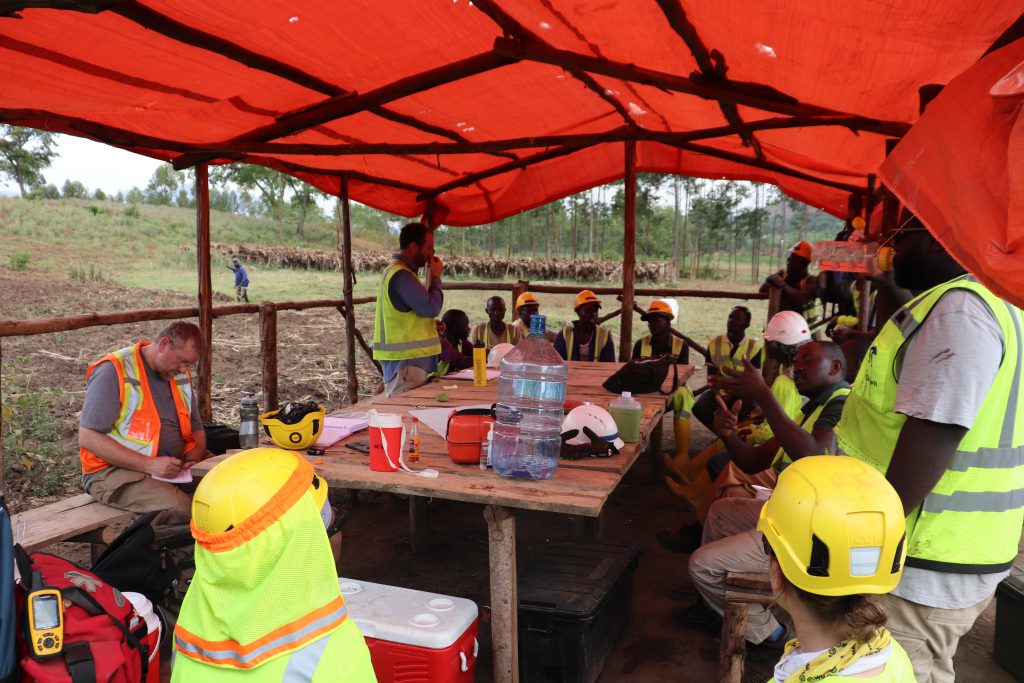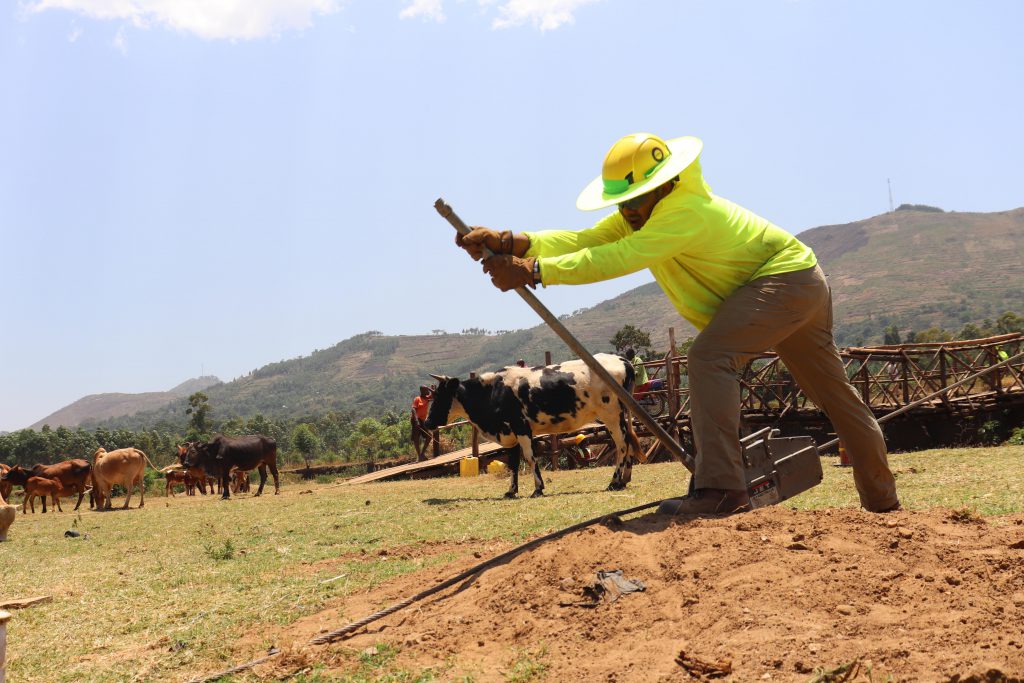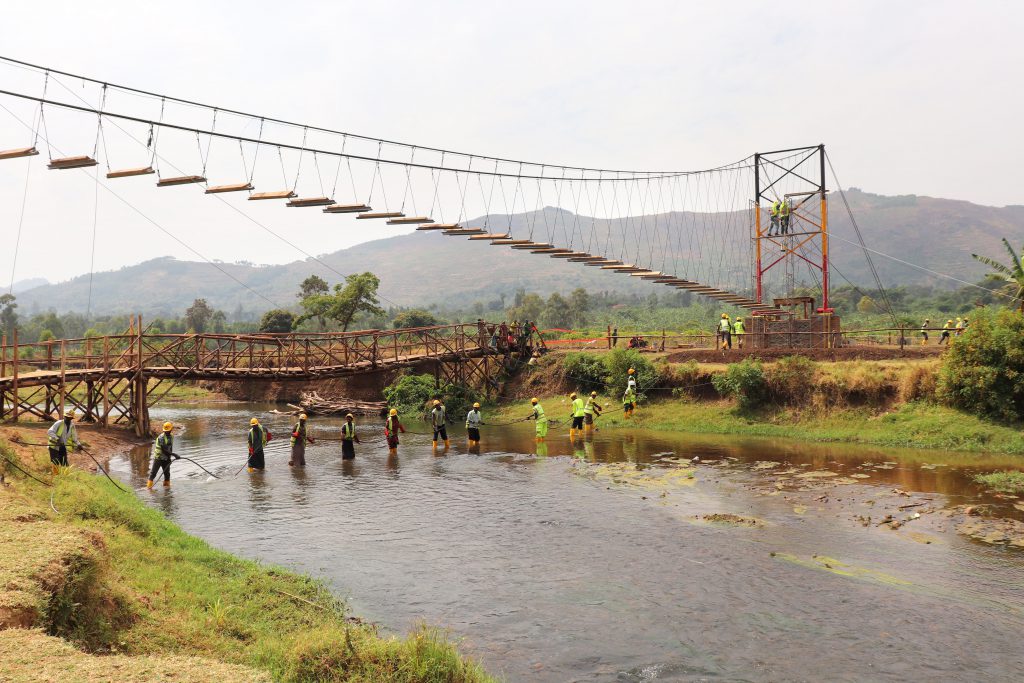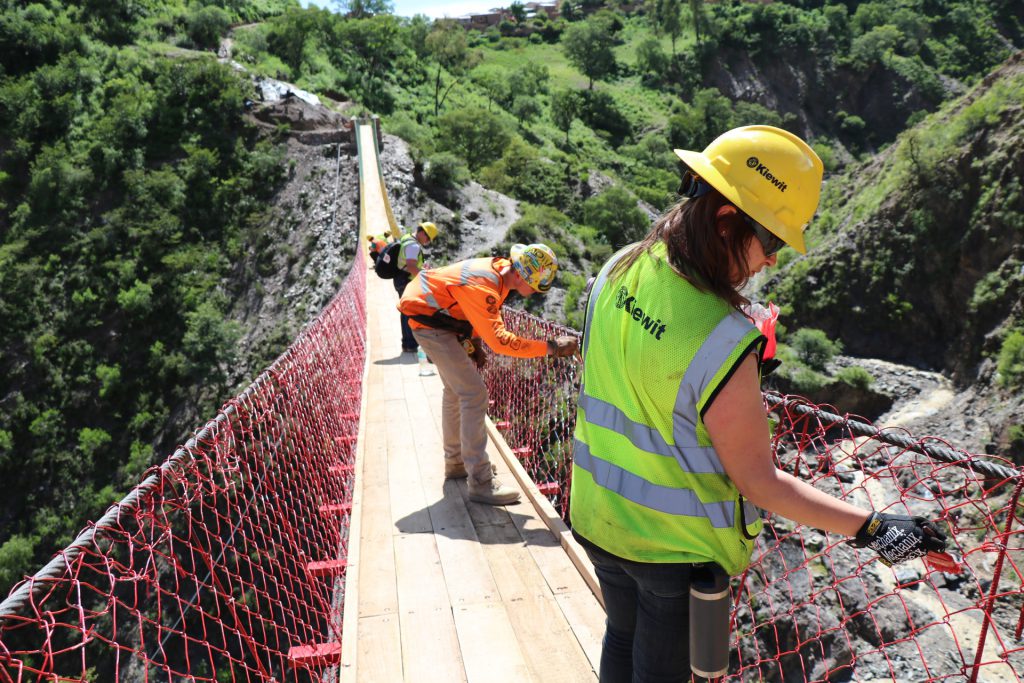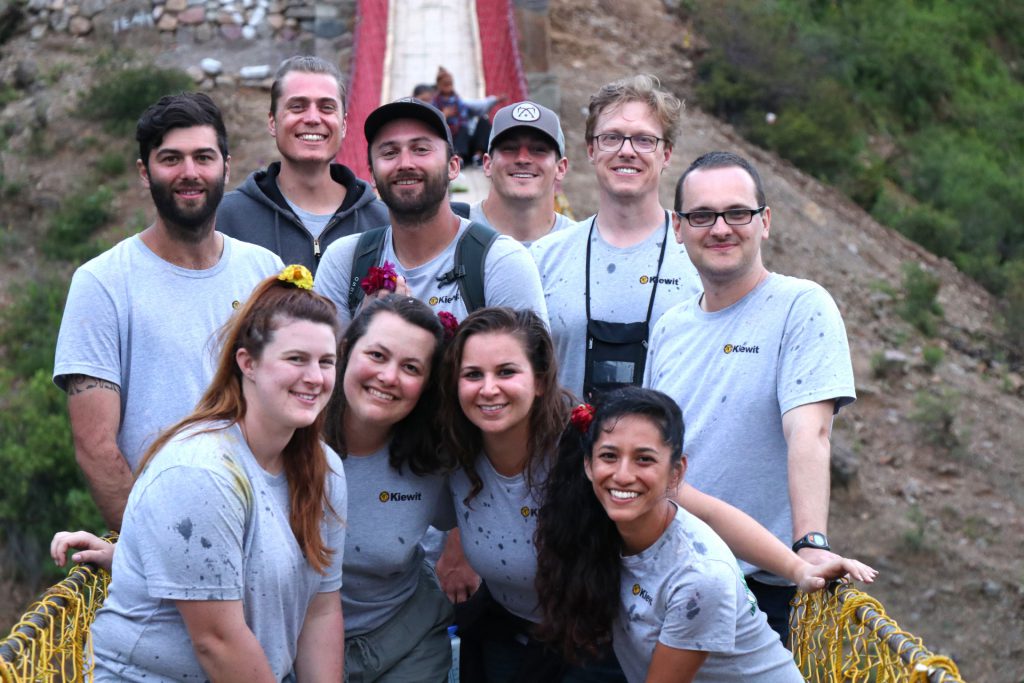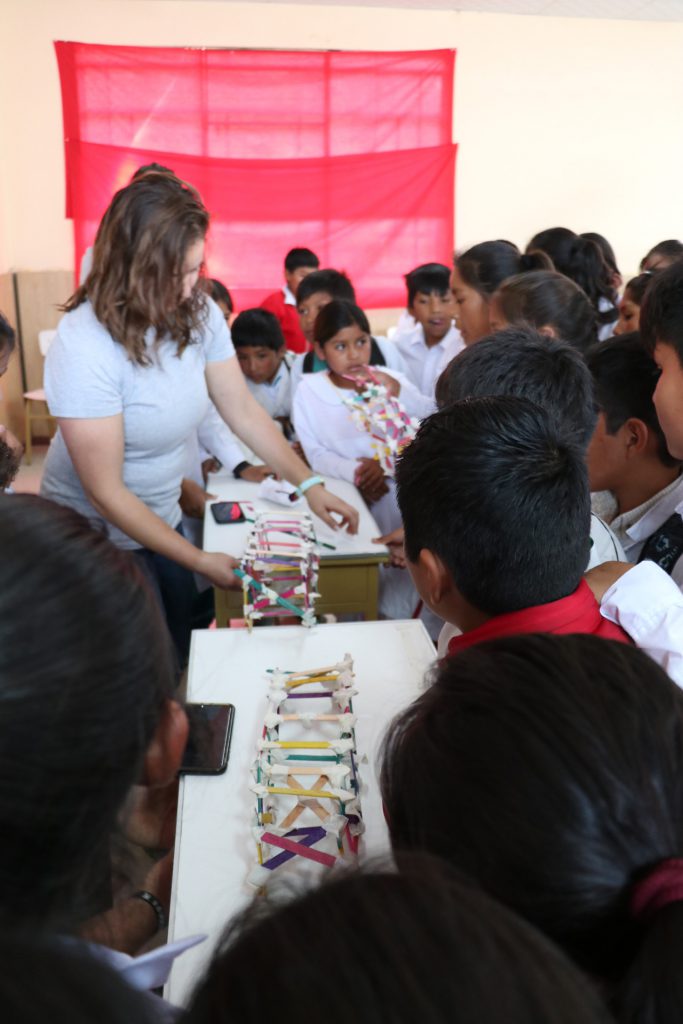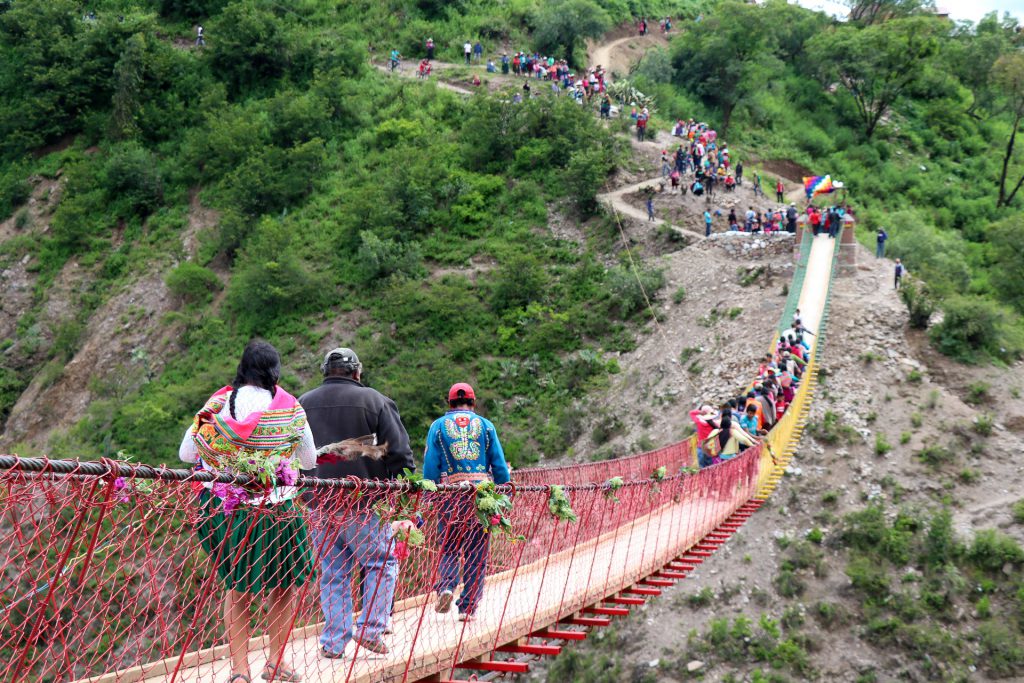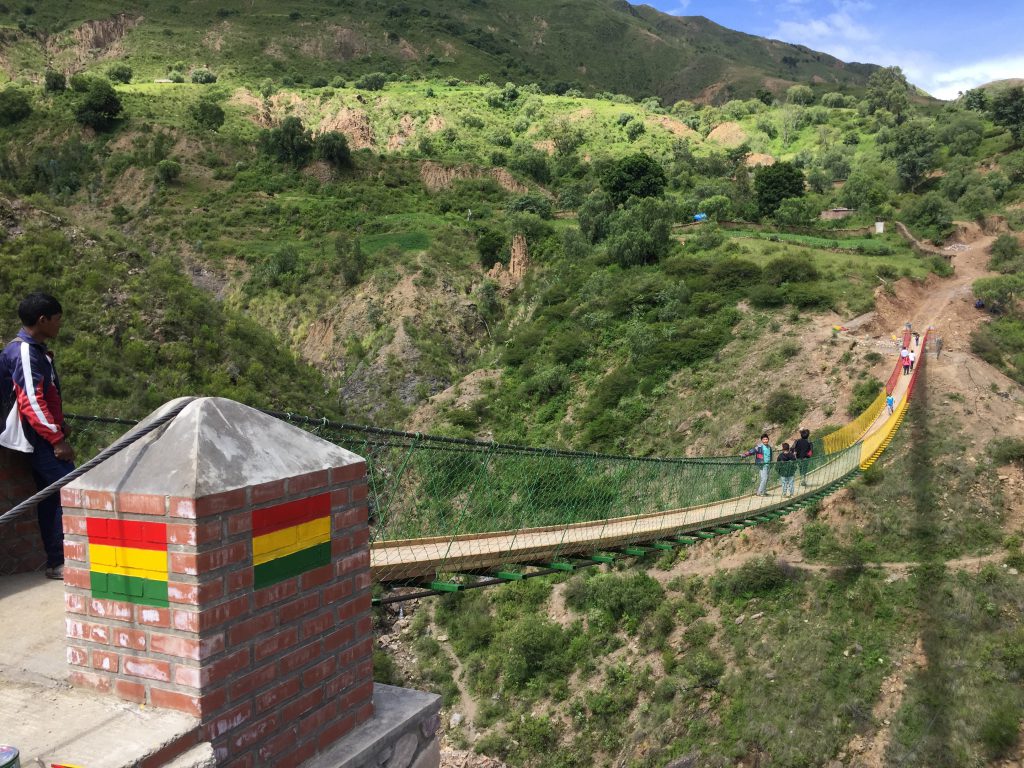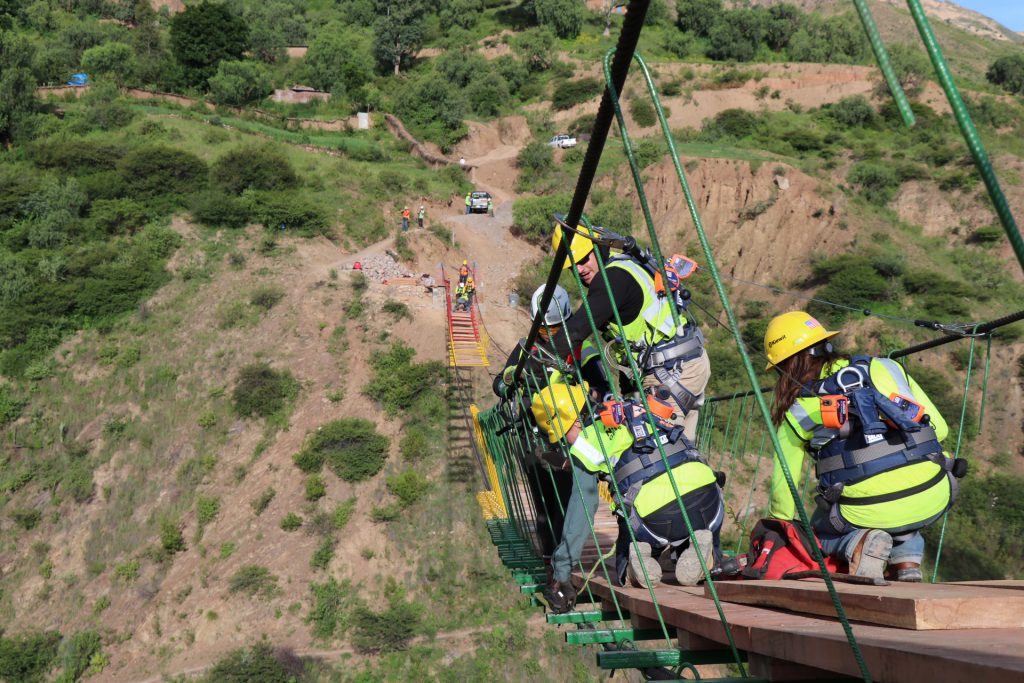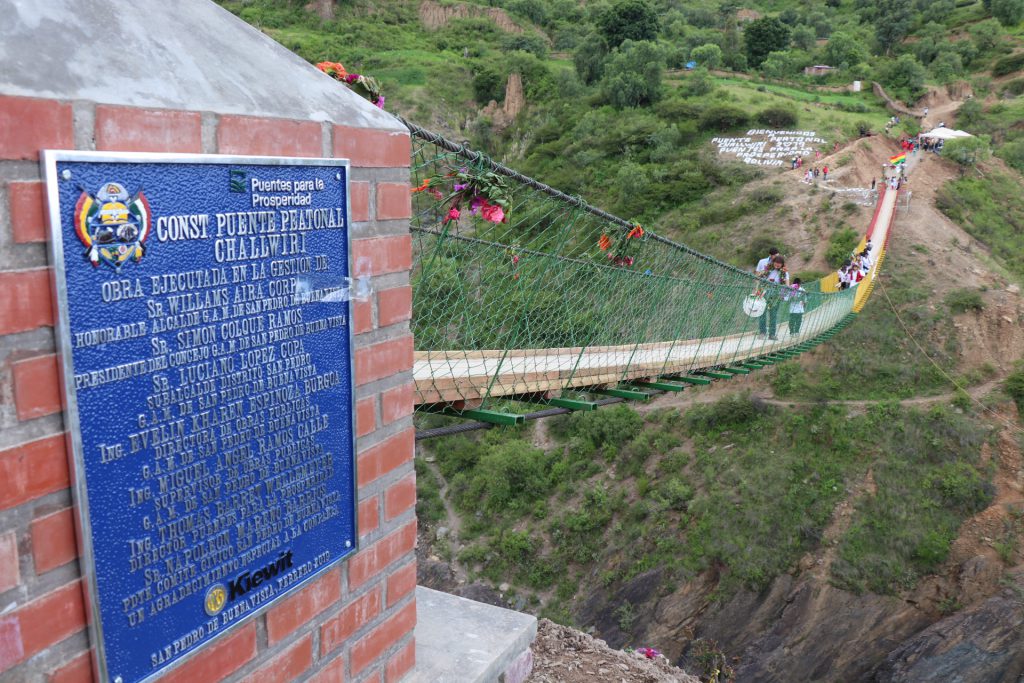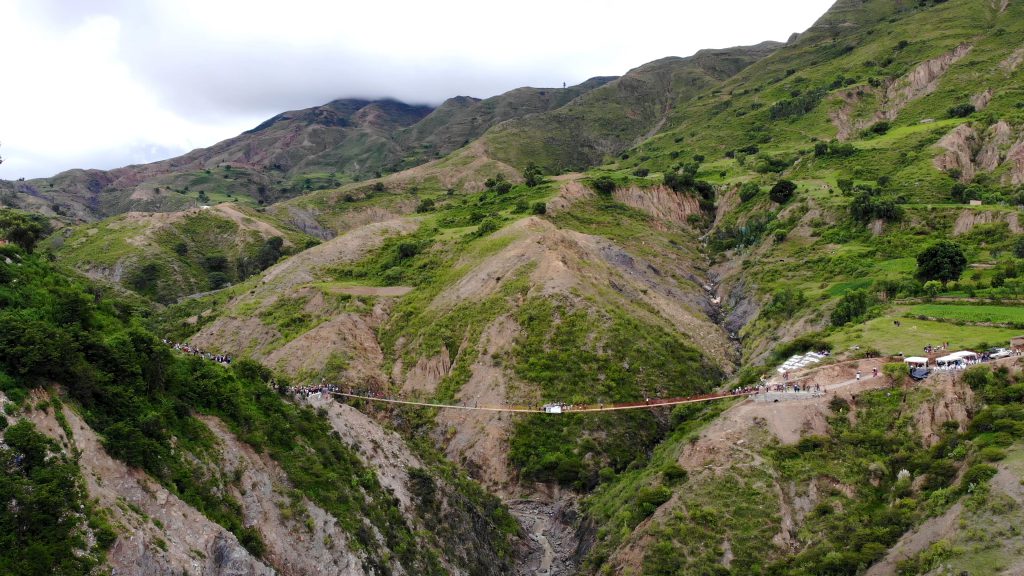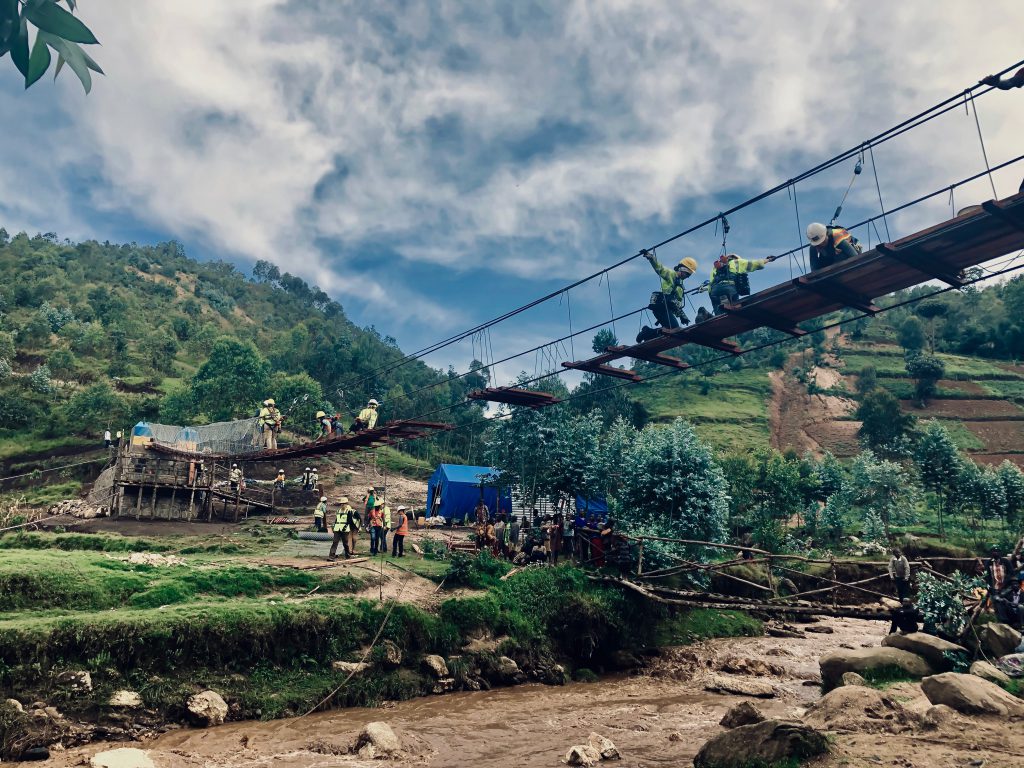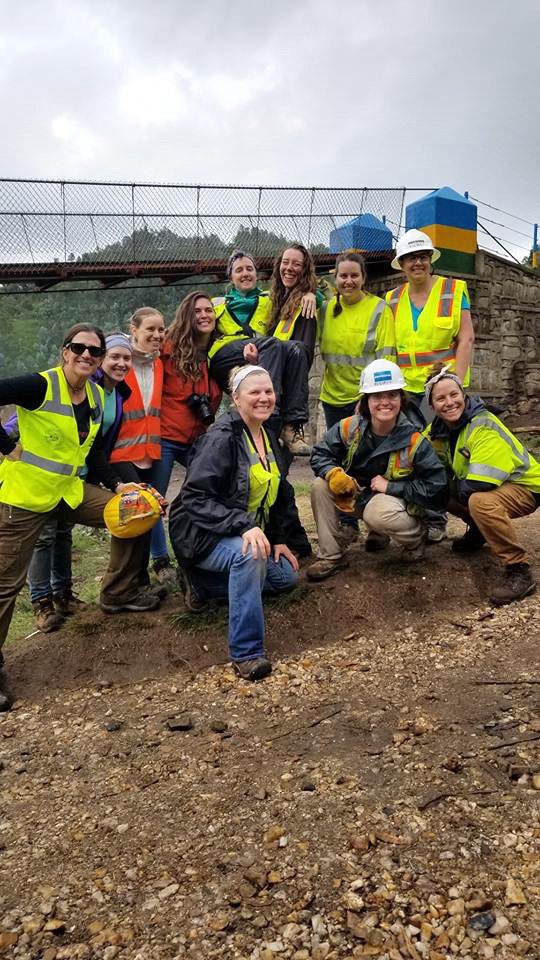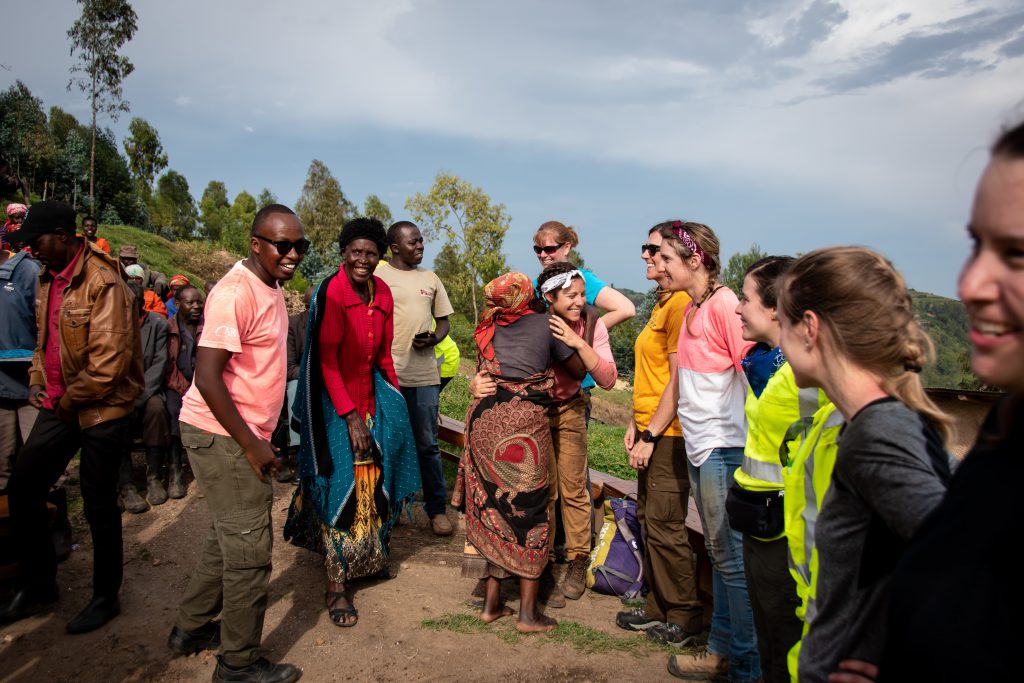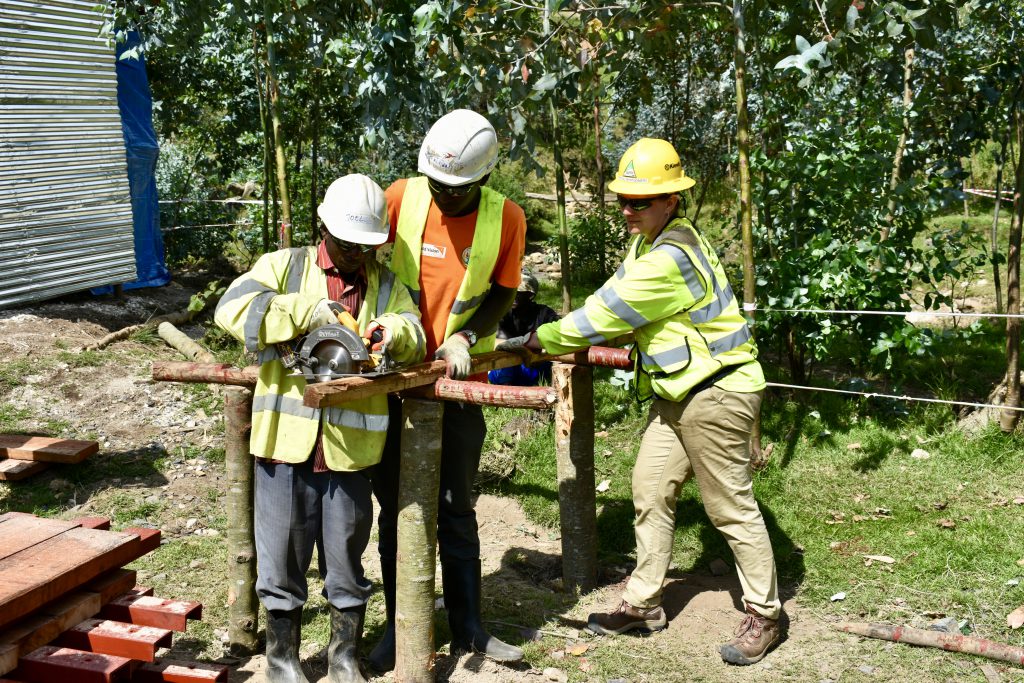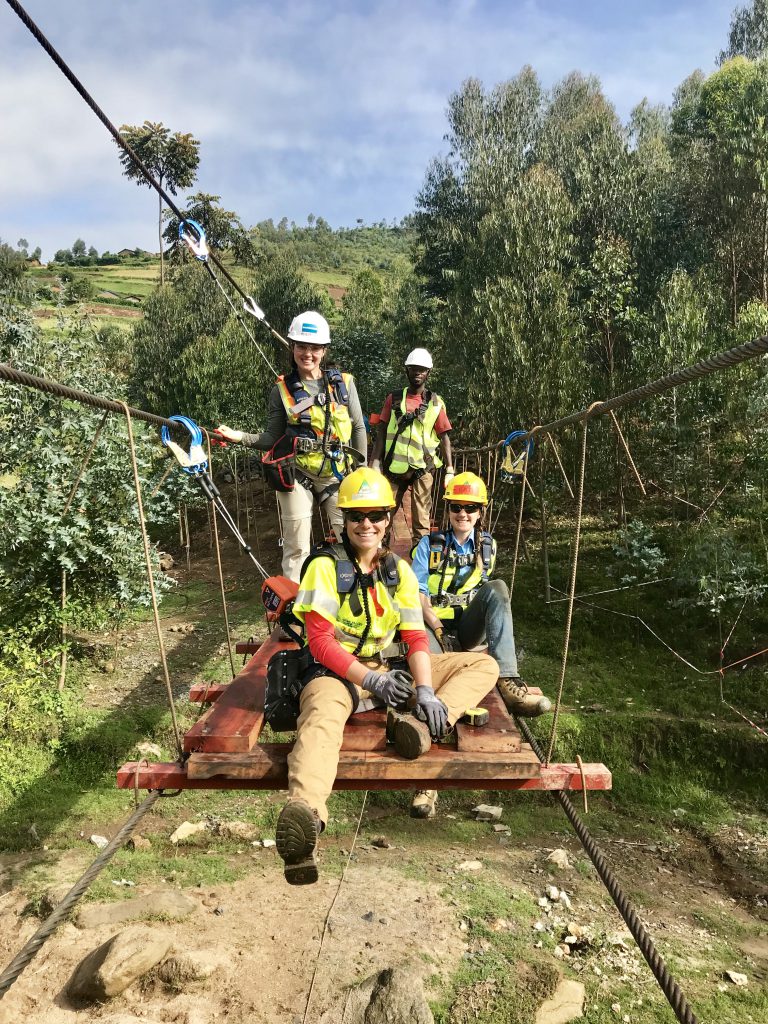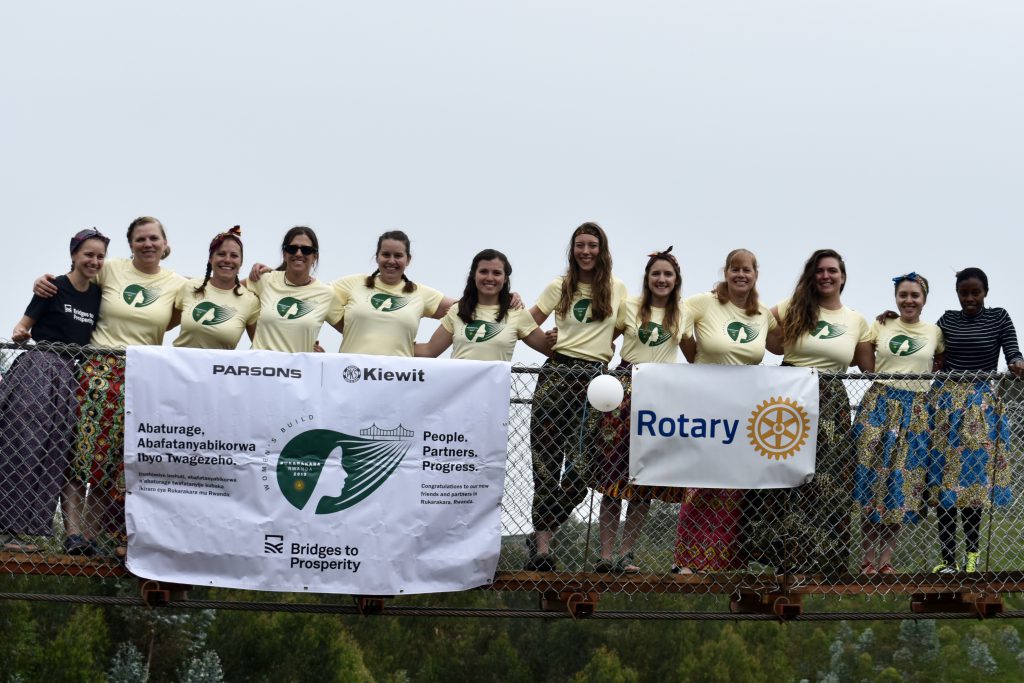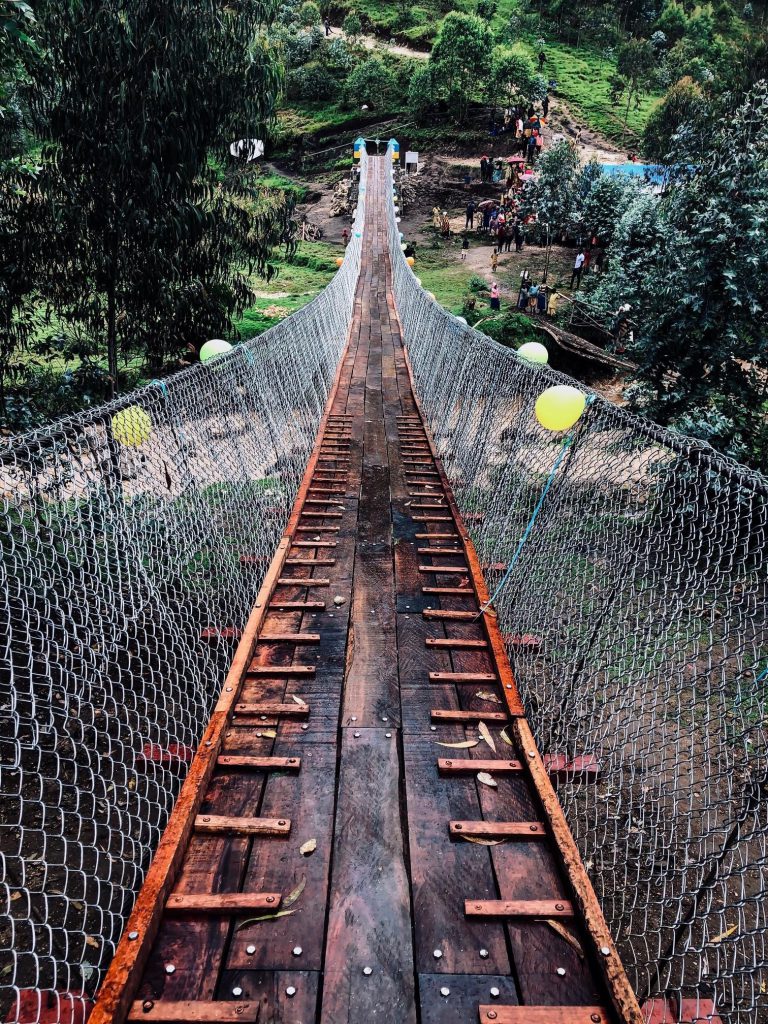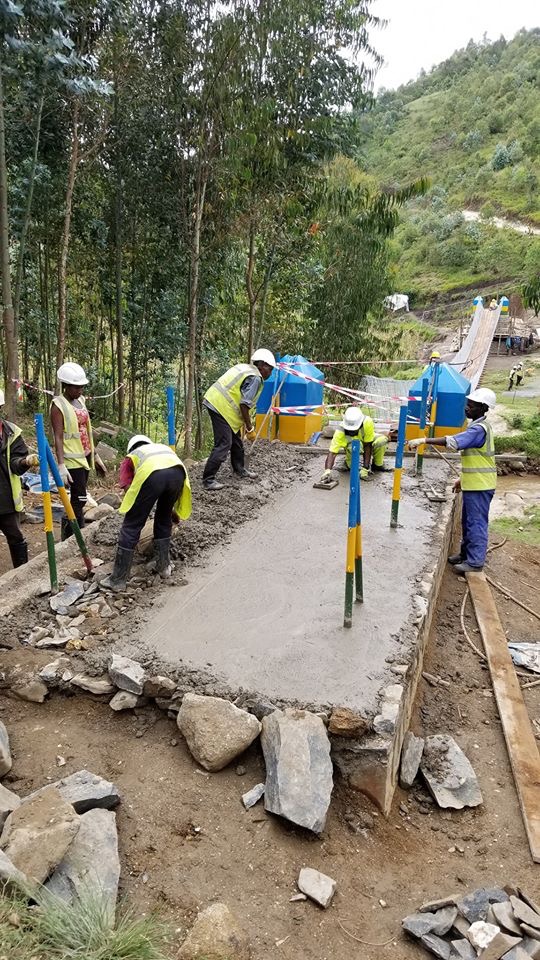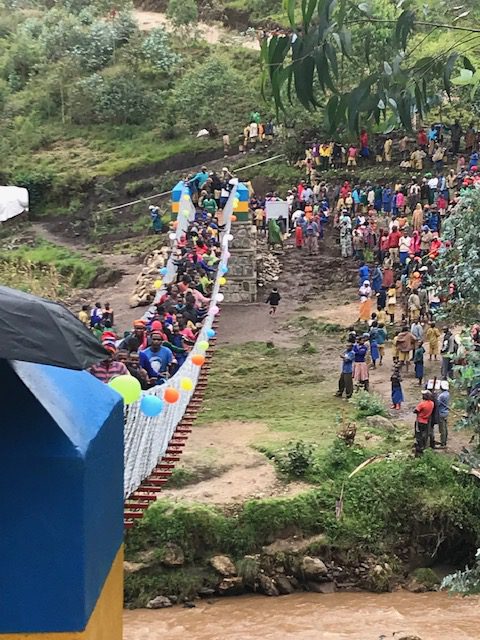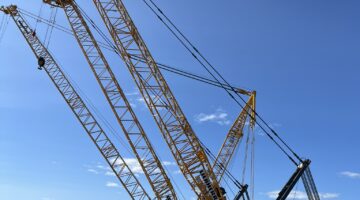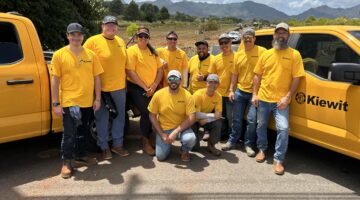Kiewit employees build some of the most amazing projects — everything from roads, buildings and power plants to dams, wind farms and water treatment plants. But for some employees, their proudest moment may come with the completion of a small suspended footbridge.
Since 2014, Kiewit employees have volunteered their time and expertise to build bridges in remote areas of South and Central America and Africa. These bridges are life-changing for the residents of the small, isolated communities they serve.
Kiewit is a global partner of Bridges to Prosperity, a non-profit organization dedicated to building footbridges over impassable rivers. These bridges give residents in remote areas access to essential health care, education and economic opportunities.
In the past six years, Kiewit employees have helped build eight bridges — four in Nicaragua, two in Bolivia, and one each in Uganda and Rwanda. Combined, these bridges provide safe passage to more than 25,000 people.
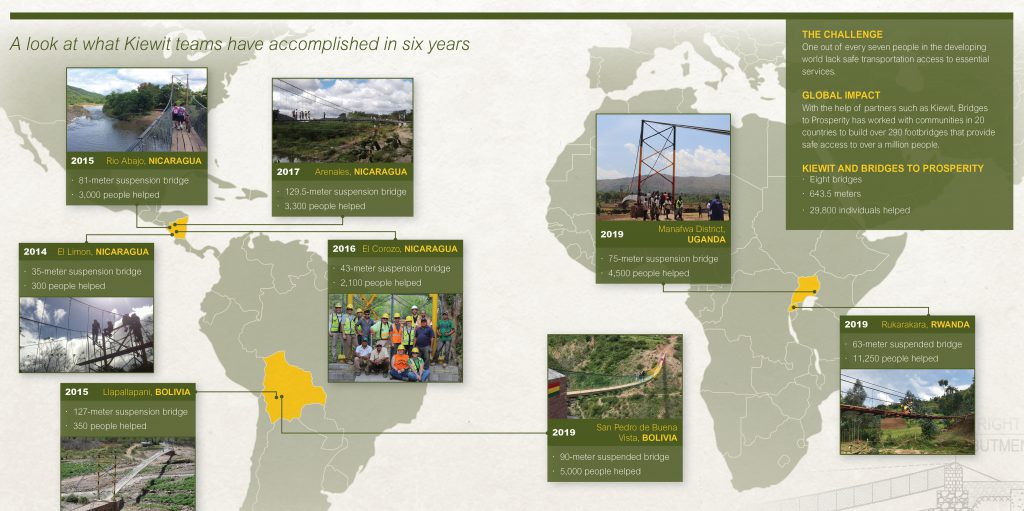
Kiewit has also helped Bridges to Prosperity establish new processes and standards for safety and community involvement on all its projects.
Holly Bartelt, senior programs and accounts manager at Bridges to Prosperity, credits Ralph Salamie, area manager at Kiewit Infrastructure Engineers (KIE), for teaching the organization best practices in team-building on the El Limon bridge in Nicaragua.
“This first bridge (with Kiewit) set the theme for how we operate, how the industry partnership program works together with communities and how we integrate to build safe access together,” she said.
Salamie first learned about Bridges to Prosperity during a presentation he attended at an industry bridge conference.
“It struck me during that presentation that this is what Kiewit should be doing,” he said. “We’re the premier bridge builder in North America. What better way to help developing countries than to improve their lives and mobility by constructing footbridges?”
Since that first bridge in Nicaragua, Kiewit has continued to build its partnership with Bridges to Prosperity.
“I can’t say enough about the relationship between Kiewit and Bridges to Prosperity,” Bartelt said. “Kiewit really helped standardize the culture of safety in our organization and brought innovations that are now core to our program.”
This year, Kiewit employees traveled to Uganda, Bolivia and Rwanda.
Manafwa District, Uganda
The Tongole bridge in Uganda is 74.8 meters long and spans the Manafwa River, providing safe access to health care, schools, markets and other essential services for 4,500 people, including more than 1,500 children.
Twelve Kiewit employees worked alongside Bridges to Prosperity staff and local Ministry of Transportation employees to build the bridge in 10 days.
“It was an eye-opening experience for me,” said Erin Duffy, a project controls manager with Kiewit Infrastructure Group Inc. “It made me realize how much we take for granted; these people walk miles every day just to get to school or a doctor.”
Duffy said it was very gratifying to be part of a team that changed the quality of life and provided mobility to those who had been making dangerous trips across a flood-swollen river.
“It was easy to see the impact in the smiles on the faces of the people who watched as the bridge came together,” she said. “I will never forget the smiles and how joyous these people are with what they have.”
Like any Kiewit job, Duffy said proper planning was the key to success. The team began calculating well in advance what they needed to do with the limited tools they’d have available, where they’d stay and how they’d get there.
In the end, the planning paid off and the bridge went up without a hitch.
“I had a blast,” Duffy said. “I’d recommend the experience to anyone.”
San Pedro de Buena Vista, Bolivia
Ten Kiewit employees from the U.S. and Canada traveled to San Pedro de Buena Vista, Bolivia, in February to build a 90-meter long suspended footbridge. The bridge was built in six days and provides access to 5,000 people.
Being in a remote area meant adapting to surroundings and limited resources. Whether the challenge was before, during or after the building of the bridge, the team worked together to safely complete tasks, including digging mud off a roadway to make it to the site.
“We all kind of agree that was probably the defining moment for teamwork,” said Lucas Camp, design-build manager and construction lead in Bolivia. “The rest of the time when we came up with problems during the build, we were reminded of our trip to the site — ‘that was a problem, everything else is solvable.’”
Stewardship was essential to the trip. The team donated supplies to the local school and taught a bridge-building activity to the sixth-grade class. They also toured a local farm to learn more about the region’s vitality.
The entire experience was unforgettable, and something that will stick with this team forever.
“Participating in Bridges to Prosperity was not something I expected when I first started with Kiewit,” said Brenna Svoboda, a structural engineer with KIE. “Being able to do something like this, and for Kiewit to care that much and send their employees on trips to do something for communities that we don’t normally work in, that says a lot about the company.”
Rukarakara, Rwanda
In March, Kiewit teamed up with Parsons to send a 10-woman team to build a 58-meter suspended footbridge over the Mudasomwa River in Rukarakara, Rwanda. The river isolated a community of about 6,000 people for most of the year.
To say the community was excited when the team arrived would be an understatement. Children followed them every day as they made their way to and from the job site, greeting them in Kinyarwanda, the local language, with the equivalent of “What’s up?” in English. At the end of each work day, the team spent time with the children, teaching them songs like “Head, Shoulders, Knees and Toes.”
Local community members also helped build the bridge, although communicating with each other was initially a challenge.
“Ninety percent of the people we met did not speak any English whatsoever,” said Amber Harley, construction manager for the build. “We got pretty good at charades.”
The team learned Kinyarwanda words and phrases daily, and in turn, taught the locals important English words like “stop” and “slow down.”
Kiewit and Parsons team members intermixed every crew with community members and trained them how to build safely. Each morning, everyone participated in “stretch and flex” exercises, alternating counting to ten in English and Kinyarwanda.
At the end of the build, the Kiewit-Parsons team held a barbecue for the entire build bridge team, followed by the official bridge inauguration. Both events were filled with lively singing and dancing to celebrate the bridge’s completion.
“It was a great opportunity and I’m happy to have had the experience,” said Harley. “I hope it’s something that we can all experience one day because it definitely has a life-changing impact on you.”
